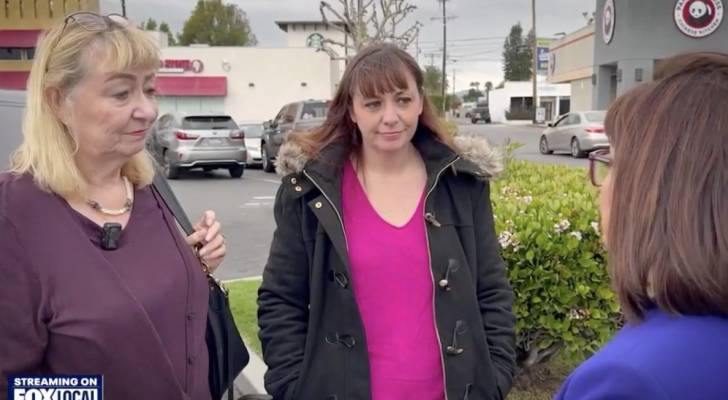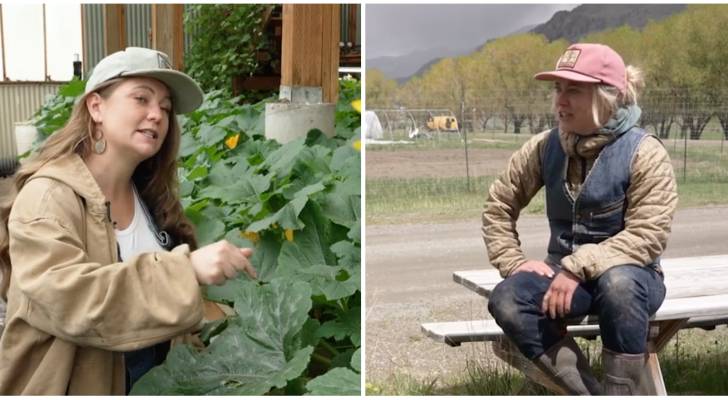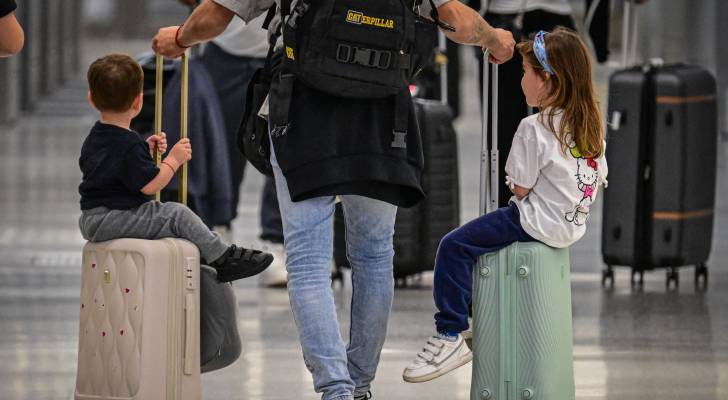Prices don’t go down: Jerome Powell says it’s too early to debate monetary policy as economy remains solid – but that optimism is not being felt in American households


Despite policy shifts under the Trump administration — from tariffs to immigration to federal spending — Federal Reserve Chair Jerome Powell says the U.S. economy remains on solid footing. While the long-term effects of the policy changes continue to unfold, Powell signaled no urgency to adjust monetary policy, citing a strong labor market and easing […]
A Texas woman sold her BMW on Facebook Marketplace for $3,500 — but then saw blowback from strangers online after it was used in a shooting. How to protect yourself in a private vehicle sale


Selling a car through online marketplaces isn’t new. It’s a go-to way for people to squeeze a little extra cash out of their used ride. But what most sellers don’t think twice about is who’s driving off with their keys — and maybe they should. On May 31, Tania Leija sold her black 2013 BMW […]
‘It doesn’t make any sense’: This Georgia homeowner’s HOA has been dinging her for years with fees of up to $2,700 — with no explanation. As foreclosure looms, legal help may be on the way
Homeowners in Channing Cove, a subdivision in Conyers, Georgia, are pushing back — demanding answers about where their mandatory HOA fees are going. Michelle Bernard has lived in the neighborhood for nearly two decades, but says she still feels like she’s fighting to own her home. The business owner, wife and mother is one of […]
‘I saw the potential’: This 47-year-old spent $50K reviving 8 abandoned apartments — now they bring in $220K a year, but the hidden costs took her by surprise


It’s easy to fall for the charm and potential of a place like Minden, Louisiana — just ask Sara McDaniel. In 2020, she came across an opportunity to purchase an eight-unit, villa-style apartment complex that had been abandoned for nearly 40 years. By then, McDaniel was no stranger to real estate; she already owned over […]
This 30-year-old tree named Donaldson may be researchers’ best shot at rooting out the deadly disease decimating Florida’s citrus trees — why they believe studying it may prove fruitful


When Americans think of fresh orange juice, they probably picture a glass poured straight from Florida’s sun-drenched groves. But for two decades, the state’s citrus industry has been under siege by a bacterial infection called citrus greening — wiping out 90% of its crop. Now, hope is budding on an unlikely branch: a 30-year-old tree […]
Fraudsters are using a $20 ‘distraction’ scam to steal thousands of dollars from victims — nearly $5,000 drained from 1 LA teacher’s bank account. Here’s how the ‘huge violation’ went down


It’s not every day a stranger insists on handing you a $20 bill you didn’t drop. But for Sarah — whose last name has been withheld, as reported by Fox LA — that’s exactly what happened on an ordinary Wednesday afternoon at a Ralphs grocery store in Van Nuys. "He came much closer to me […]
‘It was an eyesore’: City of Oakland clears homeless encampment, relocating 70 people to state-funded shelter — but advocates say crews moved too fast without offering sufficient supports


The City of Oakland has cleared a large homeless encampment on East 12th Street, relocating about 70 people to the Mandela House — a former hotel turned shelter, now funded through a state grant. The move marks one of the city’s most visible steps toward addressing homelessness, a crisis that has more than doubled in […]
This Montana duo needed help running their 10-acre farm so they turned to TikTok — and ended up with 4,000 applications. Here’s how they turned a shared dream into a sustainable reality


When you can’t find farmhands the old-fashioned way, it might be time to think outside the fence posts. That’s exactly what the founders of Yellowstone Farmstead did. The agricultural venture, nestled at the Montana side of Yellowstone National Park, began as Shugabeet Farms — a solo project launched by sixth-generation Maine farmer Sage LeBlanc. In […]
‘Please do not go to the airport’: Florida-based regional airline Sliver Airways abruptly shuts down after filing for bankruptcy, leaving travelers stranded — what to do if you’re affected


There’s missing a flight, and then there’s missing every flight because your airline just went bankrupt. That’s what happened to hundreds of travelers this week when Silver Airways, a Florida-based regional carrier, abruptly announced it was ceasing operations effective immediately. Don’t miss I’m 49 years old and have nothing saved for retirement — what should […]
This Atlanta Burger King employee worked a last-minute shift in graduation gown after high school ceremony — now he’s $87,000 richer. Here’s what the teen can teach you


While many high school graduates are celebrating the season with dinners, parties and well-deserved rest, one teen in metro Atlanta marked the milestone a little differently — trading his cap and gown for a shift at Burger King. Still wearing his graduation medals around his neck, 18-year-old Mykale Baker showed up to work at the […]
